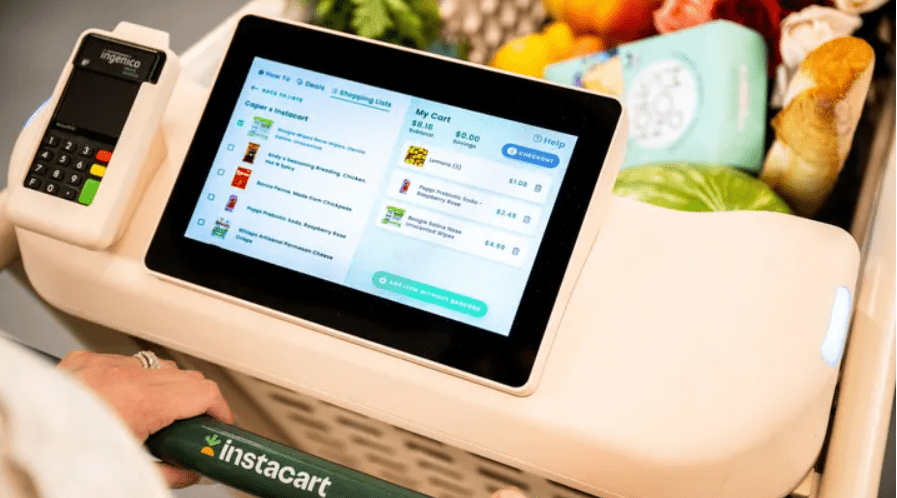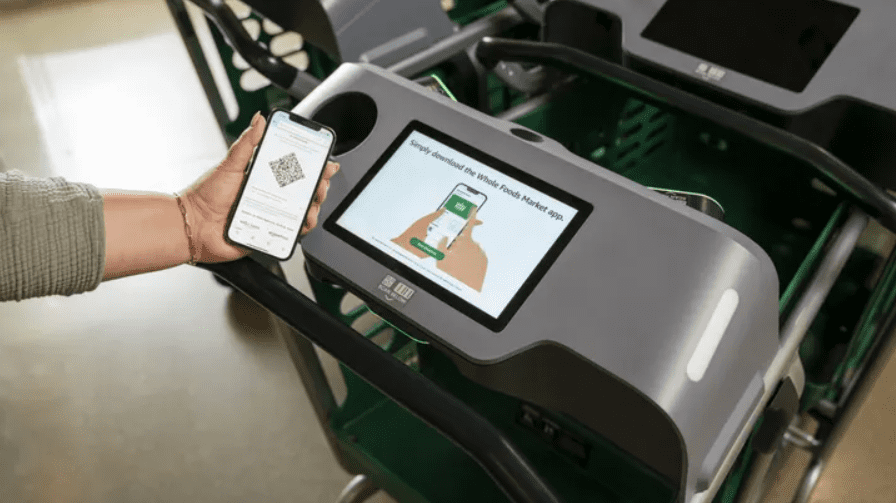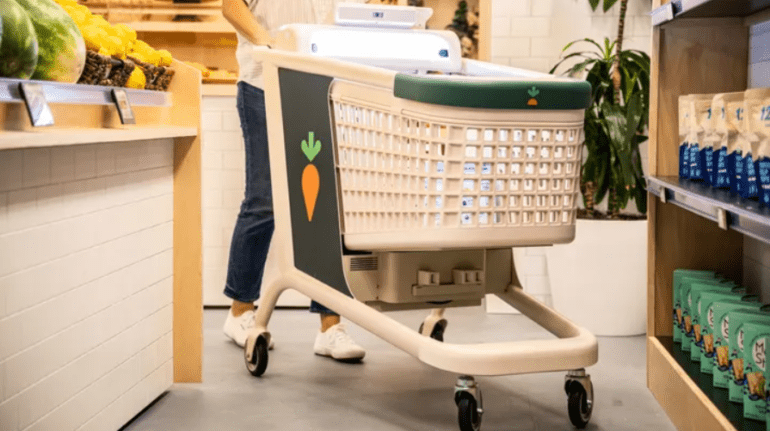TL;DR:
- Instacart collaborates with retailers to introduce smart shopping carts with AI technology.
- Shoppers can scan items, weigh produce, and track expenses in real time using these high-tech carts.
- Loyalty account integration offers access to exclusive promotions and savings.
- Personalization is the key focus, with AI recognizing shopping habits and suggesting tailored products.
- Amazon is developing its Dash Cart to streamline the checkout process.
- Albertsons reduces in-store shopping time with smart carts from Veeve.
- Shopic, Shufersal, and Wegmans have also adopted smart cart technology.
- Instacart’s Caper Carts are available in select Kroger, Schnucks, Sobeys, ShopRite, Fairway Market, Bristol, and Geissler’s stores.
Main AI News:
In the ever-evolving landscape of modern retail, artificial intelligence is reshaping the way consumers experience grocery shopping. Two major players, Instacart and Amazon, have harnessed the power of AI to enhance the convenience and efficiency of traditional grocery store visits.
Instacart, a prominent grocery delivery company, has joined forces with retailers nationwide to introduce its cutting-edge smart shopping carts. These innovative carts incorporate AI technology, elevating the shopping experience to a new level. Shoppers can seamlessly scan their selected items directly within the cart, accurately weigh produce, and monitor their total expenditure in real time. Furthermore, customers have the privilege of utilizing their loyalty accounts on these high-tech carts, gaining access to exclusive promotions and savings while they shop.
David McIntosh, Vice President and General Manager of Connected Stores at Instacart, emphasized the significance of catering to budget-conscious shoppers. He stated, “The vast majority of shoppers are shopping on a budget. Nobody wants to get to the checkout lane and have to put items back because you go over budget.” Shoppers concur with this sentiment, as the most cherished feature of these smart shopping carts is the ability to view the running total of their cart contents. Keisha Branch, a satisfied customer at Fairway Market in New York City, one of the participating supermarkets, lauded the carts, saying, “When you’re on a budget, you can see where you are at any given point. If you can continue, or if you need to switch items out.”

Instacart’s Caper Cart, which uses AI technology, is seen in a store. Source: Fox News
These state-of-the-art shopping carts are powered by Caper AI, a company acquired by Instacart for $350 million in 2021. McIntosh elaborated that AI technology drives the carts’ advanced recognition capabilities, allowing for efficient item scanning and accurate weight measurement. The ultimate objective is to achieve a heightened level of personalization. Instacart envisions these carts becoming adept at recognizing individual shopping habits and recommending products or recipes tailored to one’s preferences and dietary restrictions. “We can really start to take the magic of the online experience and bring it to the store,” McIntosh emphasized.
Instacart is not alone in its pursuit of developing and introducing smart shopping carts. Traditional brick-and-mortar grocery stores, which continue to hold a dominant market share, are facing intensified competition from the realms of delivery and online retail. Consequently, these stores are exploring ways to incorporate digital elements into the shopping process. Amazon, for instance, is actively working on its Dash Cart, which allows customers to log in and skip the conventional checkout process. Albertsons, in collaboration with Seattle-based Veeve, has introduced smart carts in select stores, effectively reducing in-store shopping time by a remarkable 24 minutes.
Across the globe, supermarket chains are embracing the smart-cart revolution. Israel-based Shopic and Shufersal, along with Rochester, New York-based Wegmans, are deploying thousands of smart-cart clip-on attachments in their stores. Instacart’s Caper Carts are already available or will soon be accessible in select Kroger, Schnucks, Sobeys, ShopRite, Fairway Market, Bristol, and Geissler’s stores.
As David McIntosh aptly summarized, “Customers shouldn’t have to choose between shopping in-store and online. It should be one single unified mode that works really well together.” The fusion of AI and grocery shopping is transforming the way consumers interact with stores, promising a more personalized and seamless shopping experience for all.




An Amazon Dash Cart used at a Whole Foods Market store. Source: Fox News
Conclusion:
The integration of AI into grocery shopping via smart shopping carts signifies a significant shift in the market. Retailers are increasingly recognizing the need to enhance the shopping experience and bridge the gap between in-store and online shopping. As AI-driven personalization becomes the norm, it will not only improve customer satisfaction but also drive greater competition among grocery retailers, pushing them to innovate further.

